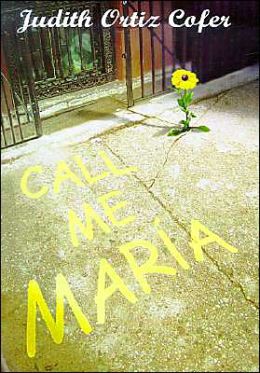I am usually María Alegre.
I like to play tricks on Mami. We will talk in English in the morning and Spanish in the afternoon. She is a teacher of English and a storyteller. She can tell stories in both languages.
We live in a cabaña, a little cement cabin, one of many that are rented out to people who want to spend time on the beach. We get ours free because Papi is the manager. He gets up before the sun is out to run a giant rake pulled by a tractor over the sand. People always leave trash at night. Sometimes Mami and I get up with him and do a treasure hunt.
One day I run into the sunny kitchen. I am wearing my mambo costume, I have painted my face like a clown’s, lots of red lipstick and thick blue eye shadow. I climb up on a chair; Mami’s red Mexican skirt is dragging on the floor. I am six years old.
“Can we dance today, Mami?” She gulps down some of her milk, leaving a red lip-mark on the glass. Mami sighs, both amused and exasperated. Mami places the bowl of steaming oatmeal on the table in front of me and pours herself a cup of café con leche.
“I want some.” I pretend to reach Mami’s cup, but she is faster. Some coffee spills on the yellow vinyl tablecloth anyway. Mami does not say anything.
She usually laughs at my tricks. But she has been very thoughtful and quiet these past few days since she got the telegram from Papi, who has been in New York visiting relatives. Tomorrow, she will take a bus to pick him up at the airport in San Juan. While they are in San Juan, they will visit Papi’s doctor. Papi has been sick, and the doctor told him he needed to take time away from his job.
I am to stay with Mami’s mother, Abuela, the three or four days that they will be away. They will bring home a new car, she has added. My grandmother said I was the happiest baby she had ever known and started calling me alegre, which means “happy” in Spanish. For a long time I thought it meant “crazy.” Then Mami started calling me her María Alegre, and I knew what she meant. I like to make Mami smile and laugh. I want her and Papi to be happy. So I have to be María Alegre.
“Can we dance today, Mami?” Music makes Mami alegre. “Yes, María Alegre. After we have digested our breakfast I will dance with you.” I know she does not feel like dancing. I have seen her sad look when she gets off the telephone with Papi.
“Can we play a Celia Cruz album?” I keep trying to cheer her up. She loves dancing to Celia Cruz’s songs. She says that Celia Cruz is seriously alegre.
“Why don’t you go play your Disney records, María Alegre?”
“I want to learn how to do the mambo today.”
Mami and I clear the table. I tip the bowl of avena and lick the bottom. Oatmeal with lots of cinnamon is my favorite. I sprinkle some more cinnamon on my spoon and lick that too. Mami does not even seem to notice. Today, she does not think anything I do is funny. I help her wash the dishes. We hear a skip in the song that is playing, and I see the gooseflesh on my mother’s arms. She smiles sadly at me. She loves those old songs.
Comprehension Questions
1. Why is Mami sad?
A. Maria is being annoying
B. Papi is sick
C. Her mother is mean
A. Eat Oatmeal
B. Sing
C. Dance
Your Thoughts
Vocabulary
4. List any vocabulary words below.

